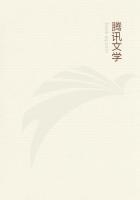
第59章 CORRESPONDENTS IN TROUBLE(2)
With his war costume, coat of mail of gold and silver, cross-belt and scabbard glistening with precious stones, boots with golden spurs, helmet ornamented with an aigrette of brilliant diamonds, Feofar presented an aspect rather strange than imposing for a Tartar Sardana-palus, an undisputed sovereign, who directs at his pleasure the life and fortune of his subjects.
When Ivan Ogareff appeared, the great dignitaries remained seated on their gold-embroidered cushions; but Feofar rose from a rich divan which occupied the back part of the tent, the ground being hidden under the thick velvet-pile of a Bokharian carpet.
The Emir approached Ogareff and gave him a kiss, the meaning of which he could not mistake. This kiss made the lieutenant chief of the council, and placed him temporarily above the khodja.
Then Feofar spoke. "I have no need to question you," said he;"speak, Ivan. You will find here ears very ready to listen to you.""Takhsir," answered Ogareff, "this is what I have to make known to you." He spoke in the Tartar language, giving to his phrases the emphatic turn which distinguishes the languages of the Orientals. "Takhsir, this is not the time for unnecessary words.
What I have done at the head of your troops, you know.
The lines of the Ichim and the Irtych are now in our power; and the Turcoman horsemen can bathe their horses in the now Tartar waters.
The Kirghiz hordes rose at the voice of Feofar-Khan. You can now push your troops towards the east, and where the sun rises, or towards the west, where he sets.""And if I march with the sun?" asked the Emir, without his countenance betraying any of his thoughts.
"To march with the sun," answered Ogareff, "is to throw yourself towards Europe; it is to conquer rapidly the Siberian provinces of Tobolsk as far as the Ural Mountains.""And if I go to meet this luminary of the heavens?""It is to subdue to the Tartar dominion, with Irkutsk, the richest countries of Central Asia.""But the armies of the Sultan of St. Petersburg?" said Feofar-Khan, designating the Emperor of Russia by this strange title.
"You have nothing to fear from them," replied Ivan Ogareff.
"The invasion has been sudden; and before the Russian army can succor them, Irkutsk or Tobolsk will have fallen into your power.
The Czar's troops have been overwhelmed at Kolyvan, as they will be everywhere where yours meet them.""And what advice does your devotion to the Tartar cause suggest?"asked the Emir, after a few moments' silence.
"My advice," answered Ivan Ogareff quickly, "is to march to meet the sun.
It is to give the grass of the eastern steppes to the Turcoman horses to consume. It is to take Irkutsk, the capital of the eastern provinces, and with it a hostage, the possession of whom is worth a whole country.
In the place of the Czar, the Grand Duke his brother must fall into your hands."This was the great result aimed at by Ivan Ogareff. To listen to him, one would have taken him for one of the cruel descendants of Stephan Razine, the celebrated pirate who ravaged Southern Russia in the eighteenth century.
To seize the Grand Duke, murder him pitilessly, would fully satisfy his hatred. Besides, with the capture of Irkutsk, all Eastern Siberia would pass to the Tartars.
"It shall be thus, Ivan," replied Feofar.
"What are your orders, Takhsir?"
"To-day our headquarters shall be removed to Tomsk."Ogareff bowed, and, followed by the housch-begui, he retired to execute the Emir's orders.
As he was about to mount his horse, to return to the outposts, a tumult broke out at some distance, in the part of the camp reserved for the prisoners. Shouts were heard, and two or three shots fired.
Perhaps it was an attempt at revolt or escape, which must be summarily suppressed.
Ivan Ogareff and the housch-begui walked forward and almost immediately two men, whom the soldiers had not been able to keep back appeared before them.
The housch-begui, without more information, made a sign which was an order for death, and the heads of the two prisoners would have rolled on the ground had not Ogareff uttered a few words which arrested the sword already raised aloft.
The Russian had perceived that these prisoners were strangers, and he ordered them to be brought to him.
They were Harry Blount and Alcide jolivet.
On Ogareff's arrival in the camp, they had demanded to be conducted to his presence. The soldiers had refused.
In consequence, a struggle, an attempt at flight, shots fired which happily missed the two correspondents, but their execution would not have been long delayed, if it had not been for the intervention of the Emir's lieutenant.
The latter observed the prisoners for some moments, they being absolutely unknown to him. They had been present at that scene in the post-house at Ichim, in which Michael Strogoff had been struck by Ogareff;but the brutal traveler had paid no attention to the persons then collected in the common room.
Blount and Jolivet, on the contrary, recognized him at once, and the latter said in a low voice, "Hullo! It seems that Colonel Ogareff and the rude personage of Ichim are one!" Then he added in his companion's ear, "Explain our affair, Blount. You will do me a service.
This Russian colonel in the midst of a Tartar camp disgusts me;and although, thanks to him, my head is still on my shoulders, my eyes would exhibit my feelings were I to attempt to look him in the face."So saying, Alcide Jolivet assumed a look of complete and haughty indifference.
Whether or not Ivan Ogareff perceived that the prisoner's attitude was insulting towards him, he did not let it appear.
"Who are you, gentlemen?" he asked in Russian, in a cold tone, but free from its usual rudeness.
"Two correspondents of English and French newspapers,"replied Blount laconically.